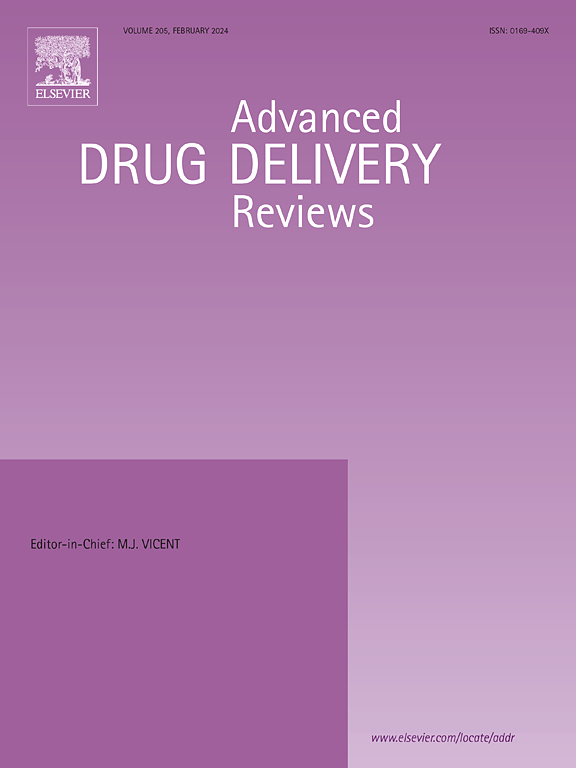Pancreatic organoids as cancer avatars for true personalized medicine
IF 17.6
1区 医学
Q1 PHARMACOLOGY & PHARMACY
引用次数: 0
Abstract
Pancreatic ductal adenocarcinoma (PDAC) is a lethal solid malignancy, rapidly progressing and highly therapeutic resistant, as reflected by its very low five-year overall survival. Despite significant advancements in our understanding of its pathobiology and the molecular mechanisms driving its tumorigenesis, therapeutic options remain limited and yield only modest clinical responses. PDAC is characterized by a high genetic inter and intratumoral heterogeneity that shapes its mutational landscape and affects its response to therapies. Facing the limitations of existing preclinical models, the development of personalized medicine in PDAC has been hampered. Translational pancreatic cancer research has been accelerated by the emergence of patient-derived organoids (PDOs), in vitro models faithfully preserving genetic, transcriptomic, proteomic, and epigenetic features and heterogeneity of the parental tumors. This review presents how PDO models can revolutionize precision oncology in pancreatic cancer by prognosticating tumor response and thereby, assist clinical decision-making. Their potential as a preclinical platform for biomarker and drug discovery, as well as future directions for enhancing the therapy response predictive power of organoid-based systems are also discussed.

胰腺类器官作为真正个性化医疗的癌症化身
胰腺导管腺癌(PDAC)是一种致命的实体恶性肿瘤,进展迅速,具有高度的治疗耐药性,其5年总生存率非常低。尽管我们对其病理生物学和驱动其肿瘤发生的分子机制的理解取得了重大进展,但治疗选择仍然有限,仅产生适度的临床反应。PDAC的特点是肿瘤间和肿瘤内的高度遗传异质性,这塑造了其突变景观并影响其对治疗的反应。面对现有临床前模型的局限性,PDAC个体化医疗的发展受到了阻碍。患者源性类器官(PDOs)的出现加速了胰腺癌的转化研究,体外模型忠实地保存了亲代肿瘤的遗传、转录组、蛋白质组和表观遗传特征和异质性。这篇综述介绍了PDO模型如何通过预测肿瘤反应从而帮助临床决策来彻底改变胰腺癌的精确肿瘤学。它们作为生物标志物和药物发现的临床前平台的潜力,以及增强类器官系统治疗反应预测能力的未来方向也进行了讨论。
本文章由计算机程序翻译,如有差异,请以英文原文为准。
求助全文
约1分钟内获得全文
求助全文
来源期刊
CiteScore
28.10
自引率
5.00%
发文量
294
审稿时长
15.1 weeks
期刊介绍:
The aim of the Journal is to provide a forum for the critical analysis of advanced drug and gene delivery systems and their applications in human and veterinary medicine. The Journal has a broad scope, covering the key issues for effective drug and gene delivery, from administration to site-specific delivery.
In general, the Journal publishes review articles in a Theme Issue format. Each Theme Issue provides a comprehensive and critical examination of current and emerging research on the design and development of advanced drug and gene delivery systems and their application to experimental and clinical therapeutics. The goal is to illustrate the pivotal role of a multidisciplinary approach to modern drug delivery, encompassing the application of sound biological and physicochemical principles to the engineering of drug delivery systems to meet the therapeutic need at hand. Importantly the Editorial Team of ADDR asks that the authors effectively window the extensive volume of literature, pick the important contributions and explain their importance, produce a forward looking identification of the challenges facing the field and produce a Conclusions section with expert recommendations to address the issues.

 求助内容:
求助内容: 应助结果提醒方式:
应助结果提醒方式:


